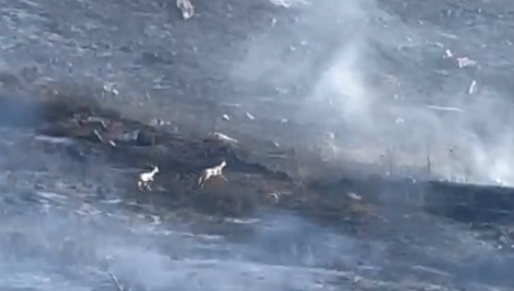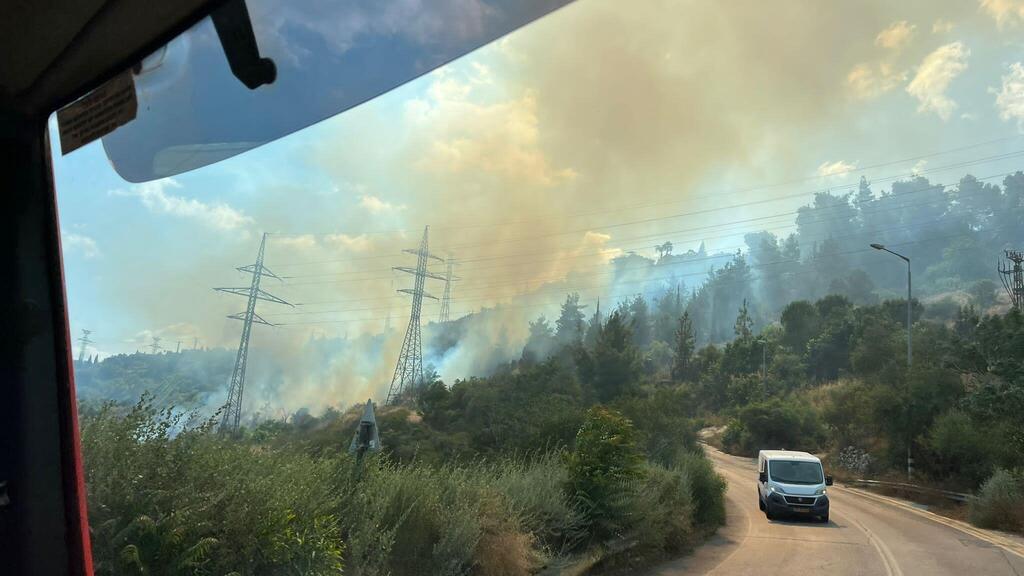Getting your Trinity Audio player ready...
Deer escape wildfire near Jerusalem
(Video: Liran Tamari)
When a brushfire ignited near Jerusalem on Monday, security cameras captured two deers as they hurried to escape the flames. Thousands of animals have perished in brushfires, notably an exceptionally large one in 2021, and the area is susceptible to such events, especially in summer.
More Stories:
Following the wildfire that frequently occurs in the Jerusalem region, the Israel Nature and Parks Authority (NPA) expressed concern about potential changes in the species composition in the area.
"After wildfires, we are always concerned about maintaining the species composition and ecological balance. We don't want a Mediterranean woodland to suddenly transform into a dense oak forest, or an increase in species like turtles, foxes, and ravens, which exploit human food sources at the expense of other species such as porcupines, songbirds, and various bird species," said Dr. Yariv Malachi, an ecologist from the Central District of the Nature and Parks Authority.
According to the NPA, Only some 4,000 deer remained in Israel, with a few hundred of them living in the Jerusalem Hills area, which is a vital habitat for them.
And while experts believe that nature can recover after each fire, they are less optimistic about the future, as the biggest concern of the ecologist is the possibility of more fires breaking out in the area.
"The real catastrophe would be if these fires occur every year. The problem is not a one-time fire, but the frequency of fires, and that's what worries us. Because no one can guarantee that next summer or in another two years, when the recovery process has already begun, there won't be another fire."






